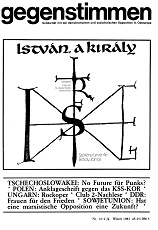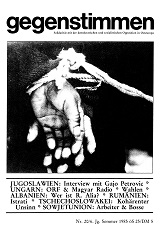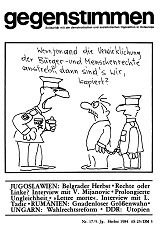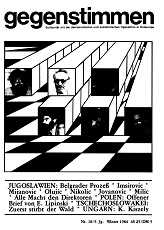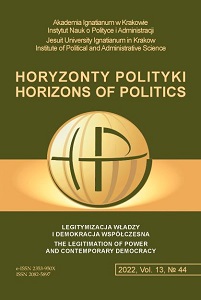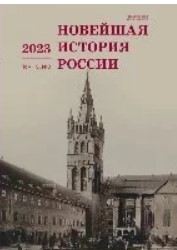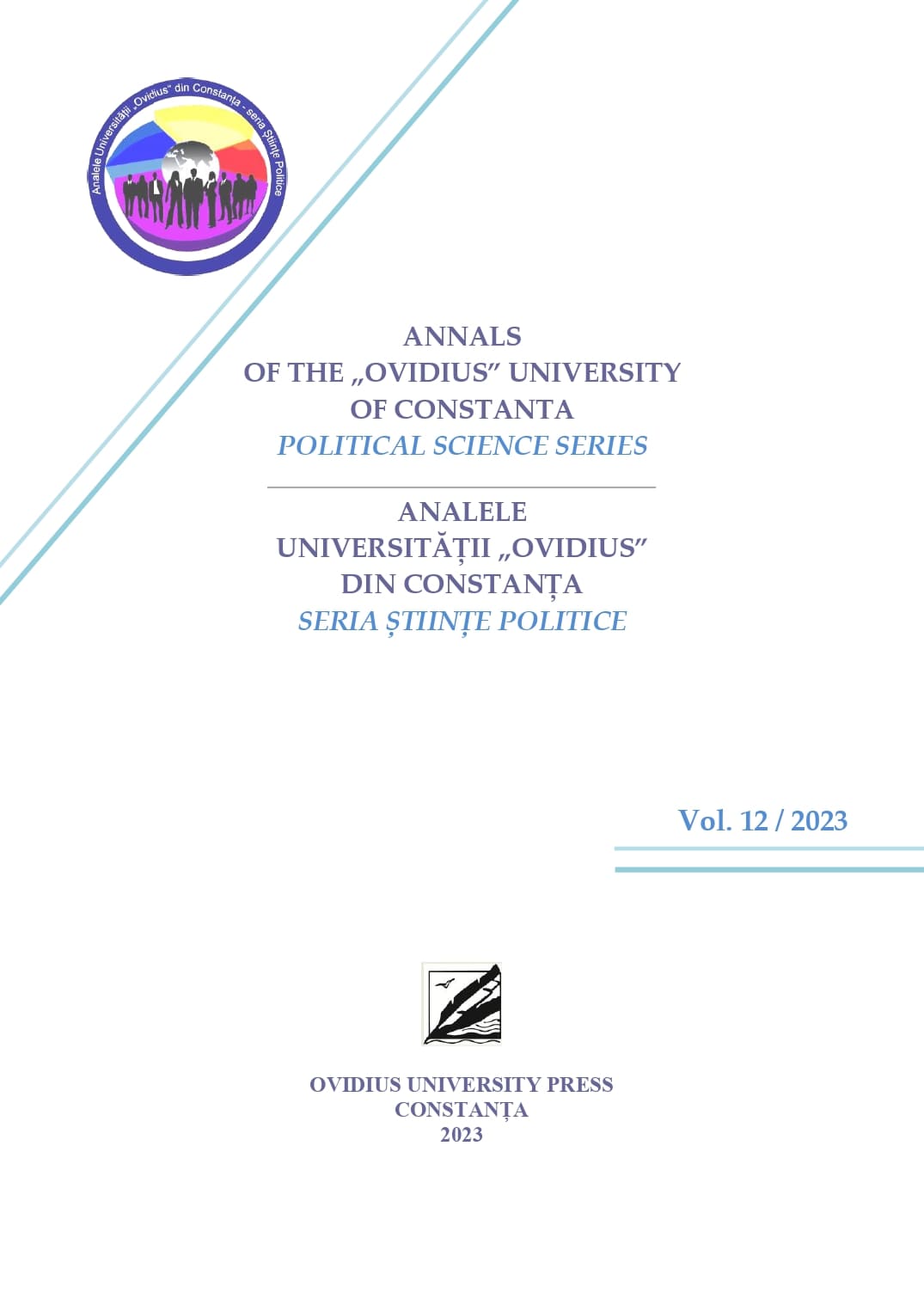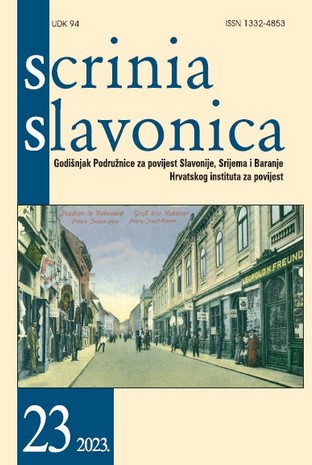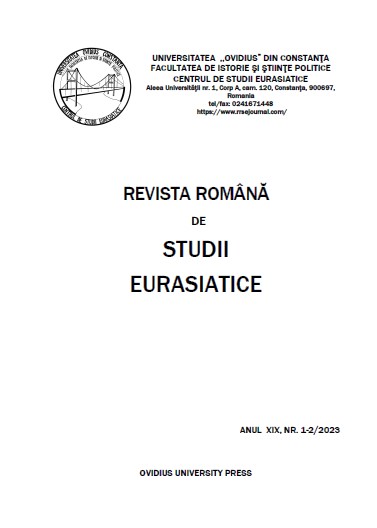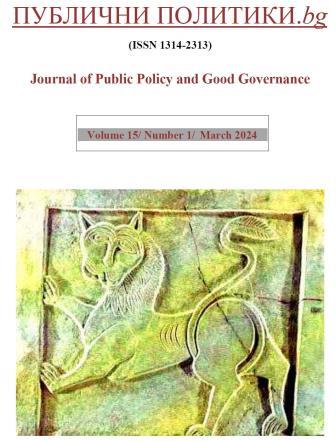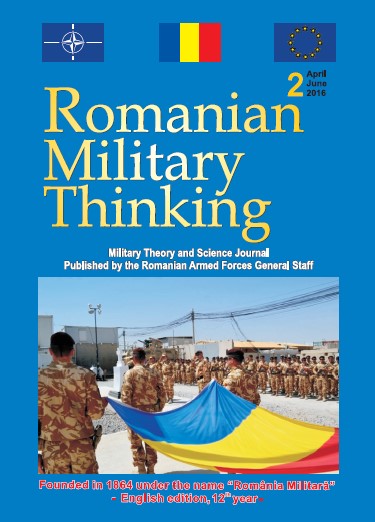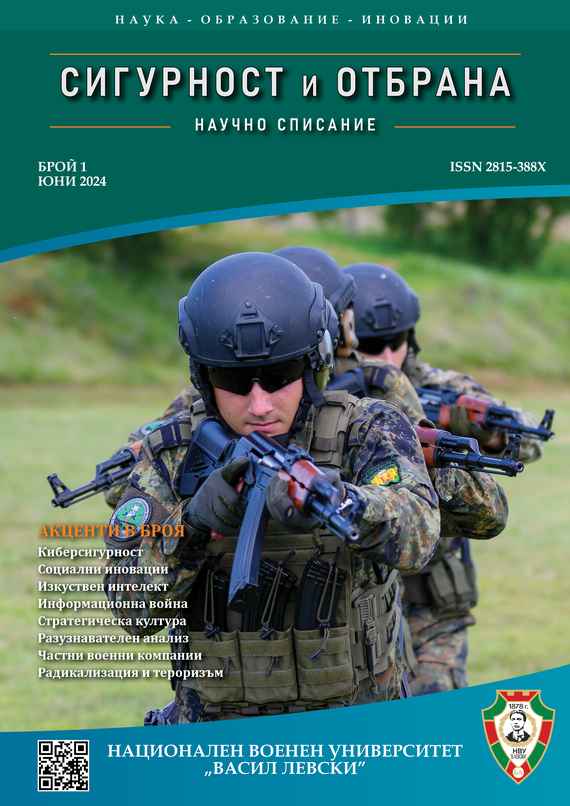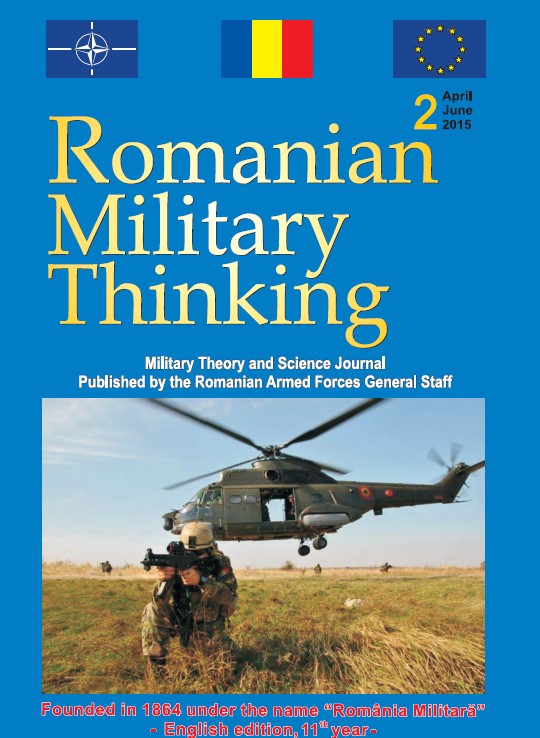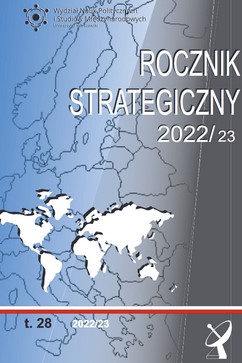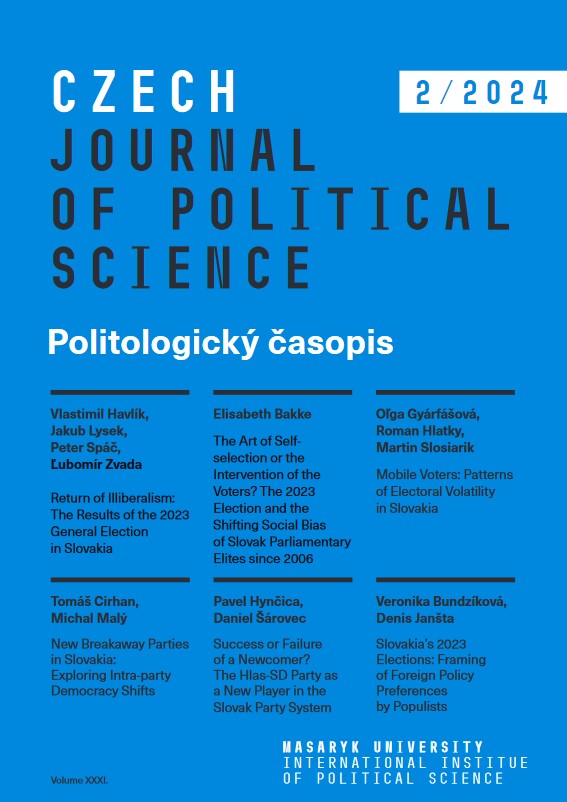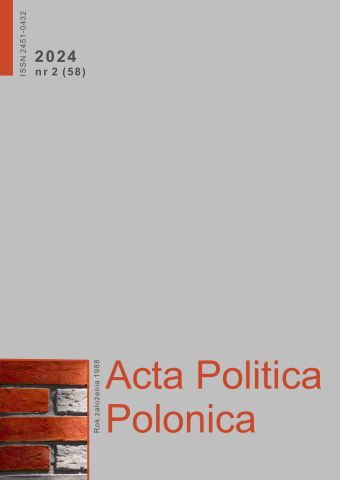Author(s): Rainer Bauböck / Language(s): German
Issue: 18/1984
Review of:
Dieter Borkowski: Für jeden kommt der Tag... Stationen einer Jugend in der DDR. Fischer Taschenbuch Verlag, Frankfurt 1983, 334 Seiten, öS 99.80/DM 12.80
Konstantin Paustowskij: Erzählungen vom Leben. Band 1: Ferne Jahre, Fischer 5803, 1984, 343 Seiten, öS 84.20/DM 10.80; Band 2: Unruhige Jugend, Fischer 5344, 1983, 315 Seiten, öS 76.40/DM 9.80; Band 3: Beginn eines unbekannten Zeitalters, Fischer 5345, 1983, 247 Seiten, öS 76.40/DM 9.80; Band 4: Die Zeit der großen Erwartungen, Fischer 5346, 1983, 267 Seiten, öS 76.40/DM 9.80; alle: Fischer Taschenbuch Verlag, Frankfurt/Main
Rainer Bauböck - Adam Schaff: Polen heute. Europaverlag, Wien 1984, 240 Seiten, öS 198.- /DM 29.80
Friedrich Uttitz: Zeugen der Revolution. Mitkämpfer Lenins und Stalins berichten. Bund-Verlag, Köln 1984, 209 Seiten, öS 218.40/DM 28.-
HOSI Wien/Auslandsgruppe: Rosa Liebe unterm roten Stern. Zur Lage der Lesben und Schwulen in Osteuropa. Frühlings Erwachen Nr. 7,142 Seiten, öS 95.80/DM 13.80
Arnulf Baring: Der 17. Juni 1953. Deutsche-Verlags-Anstalt, Stuttgart 1983,199 Seiten, öS 154.40/DM 19.80
Lubomír Sochor: Beitrag zur Analyse der konservativen Elemente in der Ideologie des »realen Sozialismus«. Studie Nr. 4, Index-Verlag, Köln 1984, 50 Seiten
W. Brus/P. Kende/Z. Mlynař: Die sowjetischen Systeme nach Breschnjew. Studie Nr. 5, Index-Verlag, Köln 1984, 47 Seiten
Zhores Medvedev: Andropov. Basil Blackwell, Oxford 1983, 227 Seiten, £ 7.50
Ingeborg Fleischhauer: Das Dritte Reich und die Deutschen in der Sowjetunion. Stuttgart 1983, Deutsche Verlagsanstalt, 258 Seiten, öS 171.60/ DM 22.-
Karel Kaplan: Politische Persekution in der Tschechoslowakei 1948-1972. Forschungsprojekt »Krisen in den Systemen sowjetischen Typs«, Studie Nr. 3, 55 Seiten. Zu bestellen bei: Dr. Zdenek Mlynař, A-1232 Wien, Porschestraße 21-23/25
More...
